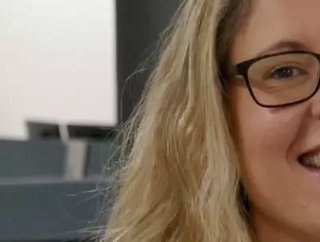5 Mins With ... Sarah Smith, Head of Migrations at ENSEK

What was it like when you started at ENSEK?
Four years ago, I had my first meeting with ENSEK. At the time, it was a small tech company in Nottingham that had recently started offering Software as a Service (SaaS) to new entrant energy suppliers. I was drawn by the opportunity to work with exciting new market entrants, whom I had heard much about, but not been able to work with. As a Management Consultant, I had spent my career supporting large retailers through customer service change programmes. I made the leap to technology and I love it.
How has the market changed since?
The energy market in the UK has gone through a huge transformation. The new entrants, who have survived, haven’t just shaken up the industry through innovative products and customer service - their reliance on SaaS providers, such as ENSEK, has shown how effective and efficient front and back-office functions can be. The biggest players in the UK and globally are looking to move to cloud-based SaaS providers to remain competitive. The last four years has kicked off a digital transformation across the UK energy sector, and it has been thrilling to be a part of that.
How do you encourage women to take up more tech roles?
As ENSEK has grown, I have also been able to influence some of the decisions we have taken around inclusion. As a working parent, I am passionate about ensuring that the most talented remain in the workforce and are given opportunities to grow and further their careers, regardless of their backgrounds or caring commitments. We have improved our maternity policy and now have best-in-class packages for parents, and challenge our leadership to think about how to improve talent retention, flexibility for all staff, and how to remove unconscious bias from decision making. Culture is a key focus for us as we grow and operate remotely through COVID.
Many businesses might still struggle with creating a supportive place of work for women, particularly mothers. There are tendencies, often unconscious ones, to put more pressure on women to do the ‘glue work’ and greater expectations regarding performance with a lack of understanding of potential family responsibilities. This is a particular concern for parents who are currently home-schooling. We have a collective responsibility to ensure that ‘flexibility’ doesn’t become another word for ‘burn-out’ as parents teach their children during the day and catch up through the night. All employers need to look for innovative solutions to maintain a happy, healthy workforce.
How do you think barriers can be overcome?
Supporting diversity of thought and approach, listening to opinions, ignoring how people look and sound, and paying attention to what they have to say is one way to start – businesses should recruit for ‘add’ rather than ‘fit’. This could be manifested by coaching and mentoring by leadership. These are great to offer all employees and, when done well, can work both ways as it helps leaders to understand the barriers and challenges faced by junior staff, particularly women and the BAME community.
Furthermore, organisations need to offer shared parental leave and encourage all parents to take it – equality at work does not happen until there is equality at home. In addition, there needs to be increased support with back to work schemes for women in technology, who have taken time out to have children. The pace of change in technology is fast and even after a few years out, a return can seem daunting.
Does the pandemic offer a fresh start?
Many businesses and organisations could benefit from rethinking socials and networking events. Although it is in our best interest to meet with like-minded people and build better working relationships, many workers struggle to attend. Luckily, the recent mass move to largely digital communication can help leaders come up with more innovative ways to network virtually.
Although the discussion around women in tech has been on the agenda for a few years now, I believe there is still a lot we can all do to encourage more female leaders and employees. If we want to achieve truly diverse and excelling workforces, we have to embark on this challenging but satisfying journey.
- Tan Delta Technology Empowers the Sustainable Energy SectorRenewable Energy
- Debunking Silicon Carbide (SiC) Myths: The Real StoryTechnology & AI
- Terabase raises US$25m for energy project construction techTechnology & AI
- How can businesses reap the benefits of mobile technology?Technology & AI






